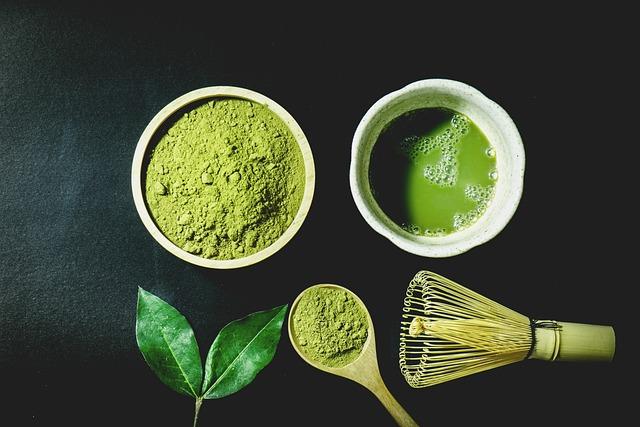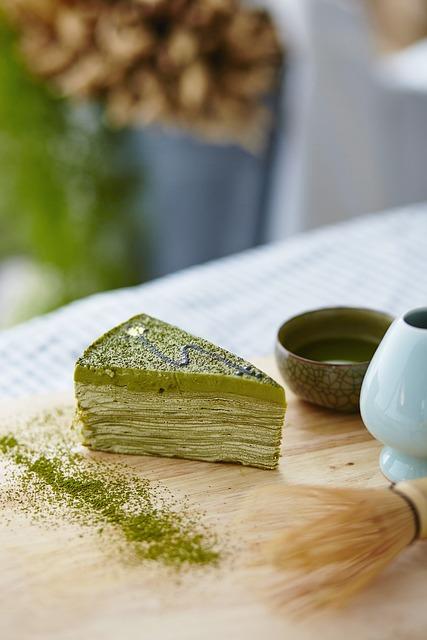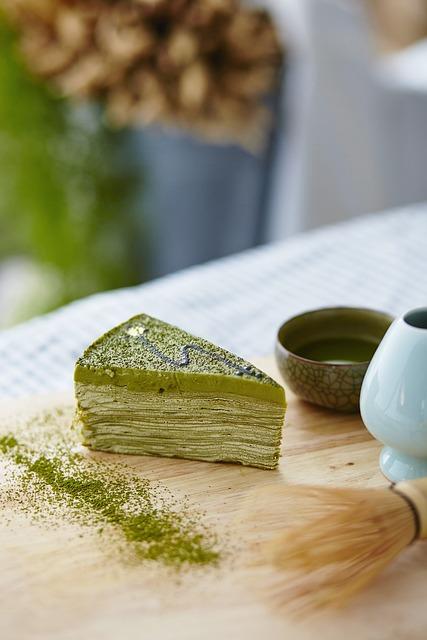Clot Chronicles: Investigating the Link Between Kratom and Blood Clots
In the world of alternative supplements, Kratom has emerged as a topic of considerable interest. This tropical evergreen tree, native to Southeast Asia, has gained popularity for its alleged pain-relieving and mood-enhancing properties. However, recent concerns have been raised regarding the potential link between Kratom usage and an increased risk of blood clot formation. In this article, we delve into the latest research findings and explore the relationship between Kratom and blood clots. By presenting you with unbiased information, we aim to shed light on this topic and help you make informed decisions about your health and well-being.
1. Understanding Kratom: An Introduction to the Popular Herbal Supplement
Kratom, an increasingly popular herbal supplement, has gained significant attention in recent years. Originating from the leaves of the Mitragyna speciosa tree native to Southeast Asia, kratom has been traditionally used for its potential medicinal properties.
One of the fascinating aspects of kratom is its diverse range of effects depending on the strain and dosage. Some kratom strains are known for their energizing and stimulating properties, while others are prized for their calming and relaxing effects. As a result, kratom has gained popularity among those seeking increased focus, mental clarity, and even pain relief.
While kratom has been utilized for centuries, it is important to understand the potential risks and benefits associated with its use. Some studies suggest that kratom may have addictive properties, and it may interact with certain medications or substances. Consequently, it is essential to approach kratom with caution, consult a healthcare professional, and adhere to proper dosing guidelines to ensure a safe and responsible usage.
Main Points:
- Kratom is a popular herbal supplement known for its potential medicinal properties.
- It originates from the Mitragyna speciosa tree and has a diverse range of effects based on strain and dosage.
- Kratom may offer benefits such as increased focus, mental clarity, and potential pain relief.
- However, it is crucial to be aware of the potential risks, addictive properties, and interactions with medications.
- Consulting a healthcare professional and following dosing guidelines is essential for safe and responsible usage.

2. The Rise in Kratom Use and its Potential Health Concerns
Kratom, a tropical plant native to Southeast Asia, has gained popularity in recent years for its potential health benefits. However, alongside its rise in use, certain health concerns have also emerged. It is important to understand the potential risks associated with kratom consumption in order to make informed decisions about its use.
One potential concern is the addictive nature of kratom. While it is often marketed as a natural alternative to opioids and as a remedy for opioid withdrawal symptoms, research suggests that kratom itself can be addictive. It contains alkaloids that interact with the brain’s opioid receptors, leading to potential dependence and withdrawal symptoms when use is discontinued.
Another health concern associated with kratom is the lack of regulation and quality control in the industry. As a result, there is a risk of consuming kratom products contaminated with harmful substances or of varying strengths. This can lead to unpredictable effects and potential adverse reactions. It is important to obtain kratom from reliable sources and use it responsibly.
- One potential concern is the addictive nature of kratom.
- Another health concern associated with kratom is the lack of regulation and quality control in the industry.
- Although more research is needed, it is essential for individuals who regularly consume kratom to be aware of the potential risks involved.
- Discussing any concerns or symptoms with a healthcare professional is crucial in order to facilitate early detection and appropriate management of blood clotting issues.
- In the meantime, it is advisable for individuals to exercise caution and consider alternative health supplements until further scientific evidence emerges that clarifies the relationship between kratom and blood clotting.
- Studies indicate that kratom may affect blood pressure levels in different individuals.
- Some research suggests that kratom may lead to an increase in blood pressure, primarily due to its stimulating properties.
- However, it’s important to note that the effects may vary, and individuals with pre-existing cardiovascular conditions should exercise caution and consult their healthcare provider before consuming kratom.
- There is limited scientific data available regarding kratom’s direct impact on blood clotting.
- Some animal studies suggest that certain alkaloids present in kratom may possess antiplatelet properties, which could potentially affect blood clotting factors.
- However, more in-depth research is needed to understand the extent of this effect and its implications on human physiology.
- Initial research suggests that kratom may influence blood sugar levels, predominantly by affecting insulin secretion or sensitivity in the body.
- Individuals with diabetes or those managing blood sugar levels should carefully monitor their glucose levels when consuming kratom, and professional medical advice should be sought.
- Contrary to popular belief, there is currently no scientific evidence to support the claim that kratom directly causes blood clots.
- Various studies have been conducted, and no conclusive link has been found between kratom consumption and the development of blood clots.
- Blood clotting disorders are multi-factorial, with several underlying factors like genetics, lifestyle, and overall health impacting their occurrence.
- While anecdotal reports may suggest a possible correlation between kratom use and increased clotting risk in individuals with pre-existing conditions, such claims lack concrete evidence.
- Kratom’s active compounds do not possess the characteristics typically associated with promoting or accelerating blood clot formation.
- It is always crucial for individuals with existing blood clotting disorders or those taking medications affecting blood clotting to consult a healthcare professional before consuming kratom.
- Unregulated Product: Be cautious when purchasing Kratom from untrustworthy sources or vendors. Look for suppliers who adhere to quality and safety standards, such as proper lab testing and transparent production practices.
- False Advertising: Avoid Kratom products that make exaggerated health claims or promise miraculous results. Remember that Kratom is not a substitute for professional medical treatment and should not be marketed as such.
- Intense Side Effects: While Kratom can have mild side effects like nausea, constipation, or dizziness, experiencing severe reactions such as hallucinations, rapid heartbeat, or difficulty breathing may suggest a higher risk and require immediate medical attention.
- Addiction Potential: Like any substance, Kratom can be addictive. Regular, excessive use or signs of dependence like strong cravings, tolerance, and withdrawal symptoms should be taken seriously and addressed accordingly.
- Interactions with Medications: Consult with a healthcare professional before using Kratom, especially if you are taking prescription medications. Some substances may interact negatively, leading to potentially harmful effects.
- Case Reports: Several case reports have identified individuals who exhibited symptoms of blood clot formation after consuming kratom. These reports, although anecdotal, have raised concerns and prompted further research.
- Chemical Components: Kratom contains alkaloids that interact with receptors in the body. Some of these alkaloids have properties that could potentially impact blood clotting, but the exact mechanism is still unknown. Scientists are working to identify the active compounds responsible.
- Dosage and Duration: Analyzing dosage and duration of kratom usage is crucial in understanding the potential association with blood clots. Research suggests that high doses or long-term use may increase the risk, yet further investigation is needed.
- Understand the legality: Before purchasing or consuming kratom, it is essential to research and understand the legal status of this substance in your country, state, or region. Laws and regulations may vary, and it is crucial to ensure compliance to avoid any legal consequences.
- Buy from trustworthy sources: To minimize the risk of potential contaminants or adulterated products, it is highly recommended to purchase kratom from reputable and established suppliers. Look for vendors who conduct third-party lab testing and provide transparent information about their sourcing and manufacturing practices.
- Start with low doses: Since kratom affects individuals differently, it is advisable to start with a low dose and gradually increase if necessary. This allows you to assess your tolerance and understand how kratom affects you personally. It is important to note that kratom should never be taken in excessive amounts.
- Consider potential interactions: If you are already taking prescribed medications or have pre-existing medical conditions, it is crucial to consult a healthcare professional before consuming kratom. Some medications or conditions may have adverse interactions with kratom, emphasizing the importance of professional guidance.
- Practice moderation: Kratom is not intended for daily, long-term use. To prevent dependency or potential adverse effects, it is recommended to use kratom in moderation and take breaks regularly. Creating a schedule and adhering to it can help ensure responsible consumption.

3. Unveiling the Connection: Investigating Kratom and its Relationship with Blood Clots
Kratom is a highly controversial herbal supplement that has been gaining popularity for its alleged health benefits. However, recent research suggests a potential link between kratom consumption and the formation of blood clots. This finding has raised concerns among both users and healthcare professionals, urging further investigation into the matter.
One of the key factors contributing to this connection is kratom’s chemical composition. The active ingredients in kratom, namely mitragynine and 7-hydroxymitragynine, have been found to exhibit properties that can increase the risk of blood clot formation. These compounds interact with certain receptors in the body, leading to changes in blood coagulation and platelet aggregation.
Moreover, anecdotal evidence from kratom users has also raised red flags. Many individuals have reported experiencing symptoms consistent with blood clot formation, such as swelling, tenderness, and warmth in their limbs, after consuming kratom. These reports have sparked concern among healthcare professionals, who are now actively involved in uncovering the potential mechanisms behind this association.
By investigating the connection between kratom and blood clots, we aim to provide a clearer understanding of the potential risks associated with this controversial herbal supplement. This research will serve as a valuable resource for not only users but also healthcare providers, enabling them to make informed decisions and better protect the well-being of those who may be at risk.
4. Kratom’s Effects on Blood: Examining the Scientific Evidence
Extensive scientific research has been conducted to understand the potential effects of kratom on blood. While anecdotal reports suggest various outcomes, it is crucial to delve deeper into the scientific evidence to gain a comprehensive understanding. Here, we shed light on the current knowledge regarding kratom’s impact on blood parameters.
1. Blood Pressure:
2. Blood Clotting:
3. Blood Sugar:
Although the existing scientific evidence provides some insights into kratom’s effects on blood parameters, it is vital to acknowledge the need for further studies to establish clearer conclusions. As with any substance, it is recommended to exercise caution, seek professional advice, and consider individual health circumstances before using kratom.

5. Decoding the Mechanisms: How Kratom May Influence Blood Clot Formation
Researchers and scientists have been intrigued by the potential effects of kratom on various bodily processes. One area of particular interest is how kratom may influence blood clot formation, and the underlying mechanisms that drive this relationship. Here, we delve into the science behind this phenomenon.
1. Antiplatelet properties: Kratom has been found to possess certain compounds that inhibit platelet aggregation, reducing the formation of blood clots. This could be due to the presence of alkaloids such as mitragynine and 7-hydroxymitragynine, which may interfere with the activation of platelets.
2. Vasodilation effects: Another potential mechanism by which kratom may influence blood clot formation is through its vasodilation properties. Kratom has been observed to relax blood vessels, improving blood flow and reducing the likelihood of clot formation. The alkaloids in kratom could be responsible for this effect, as they impact the smooth muscles of blood vessels.
3. Anti-inflammatory properties: Chronic inflammation has been linked to an increased risk of blood clot formation. Kratom’s anti-inflammatory effects may help mitigate this risk by reducing the production of pro-inflammatory molecules. By keeping inflammation under control, kratom could potentially contribute to the prevention of blood clot formation.
While the exact mechanisms through which kratom influences blood clot formation are still being studied, current research suggests its potential as a modulator of this process. However, further investigation is needed to fully understand the intricate relationship between kratom and blood clot formation.

6. Unraveling the Controversy: Debunking Myths Surrounding Kratom and Blood Clots
As discussions about the potential risks and benefits of using kratom continue, one significant controversy revolves around its alleged association with blood clots. It is essential to separate fact from fiction to better understand the truth about kratom’s effects on blood clotting.
Myth 1: Kratom directly causes blood clots.
Myth 2: Kratom exacerbates existing blood clotting conditions.
In conclusion, the controversy linking kratom with blood clots remains largely unfounded. The available research and scientific literature do not establish a direct causal relationship between kratom and blood clotting. However, it is essential to approach kratom use responsibly and seek professional advice when dealing with any pre-existing health conditions.
7. Warning Signs: Identifying Potential Risks and Red Flags when using Kratom
When using Kratom, it is important to be aware of certain warning signs that may indicate potential risks or red flags. Identifying these signs can help users make informed decisions and take necessary precautions. Here are some key indicators to watch out for:
It is vital to stay informed and be vigilant when using Kratom. By knowing and recognizing these warning signs, individuals can minimize potential risks and ensure a safer experience.
8. It’s Time for Answers: Research and Studies on Kratom’s Link to Blood Clots
Research and studies are currently being conducted to explore the potential link between kratom and blood clots. While more investigation is needed, early findings suggest that there may be a correlation between the two. It is essential to highlight that these studies are ongoing, and conclusive results have not yet been established.
Here are some key points to consider when examining the potential link between kratom and blood clots:
As we await more concrete evidence, it is vital to approach kratom consumption with caution and consult healthcare professionals for guidance. The available research is evolving, and it is essential to stay informed on the latest updates regarding kratom’s potential link to blood clots.
9. Navigating Safety: Expert Recommendations and Precautions for Kratom Consumers
Kratom is a popular botanical substance used for various purposes, including pain relief and mood enhancement. However, it is important for kratom consumers to be aware of certain safety measures to ensure both their own well-being and the responsible use of this plant. Here are some expert recommendations and precautions to consider:
By following these expert recommendations and taking necessary precautions, kratom consumers can enhance their safety and enjoy the potential benefits offered by this botanical substance.
Conclusion
In conclusion, the investigation into the potential link between kratom and blood clots has shed light on an emerging concern. While kratom has gained popularity as a natural alternative for pain management and relaxation, it is crucial to recognize the potential risks associated with its use.
Through the analysis of various case reports and studies, a pattern has emerged, suggesting that kratom may have the potential to contribute to the development of blood clots in certain individuals. The mechanisms behind this intriguing association are still being explored, but it is suspected that kratom’s effects on platelet function and blood coagulation pathways may play a role.
However, it is important to emphasize that further research is needed to establish a definitive causal relationship between kratom and blood clots. The limited number of reported cases and the lack of controlled studies make it challenging to draw definitive conclusions at this stage. Nevertheless, these findings raise important questions and warrant cautious consideration when using kratom.
As with any substance, it is advisable to consult with healthcare professionals before incorporating kratom into your wellness routine, especially if you have a pre-existing medical condition or are taking medications that may interact with it. Vigilance and open communication with healthcare providers can help mitigate potential risks and ensure your safety.
Ultimately, as ongoing research strives to unravel the complexities surrounding kratom and its possible link to blood clots, it is paramount to approach this topic with an open mind and a commitment to evidence-based knowledge. By staying informed and making informed choices, we can navigate the landscape of kratom usage responsibly and prioritize our well-being above all else.






